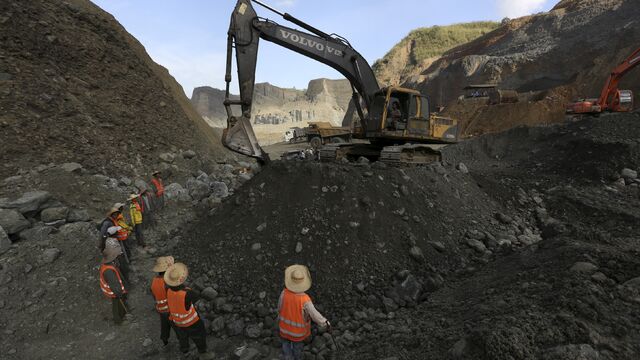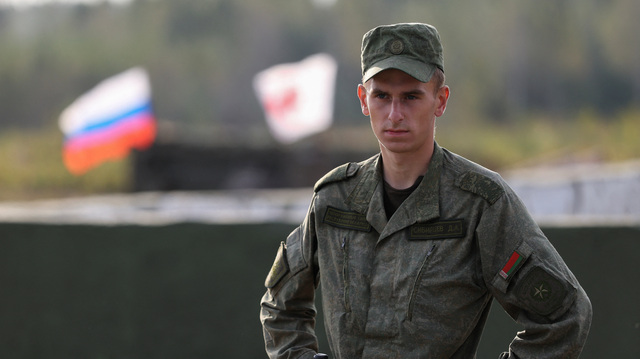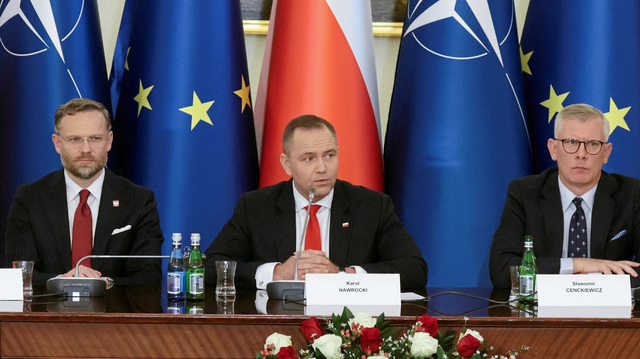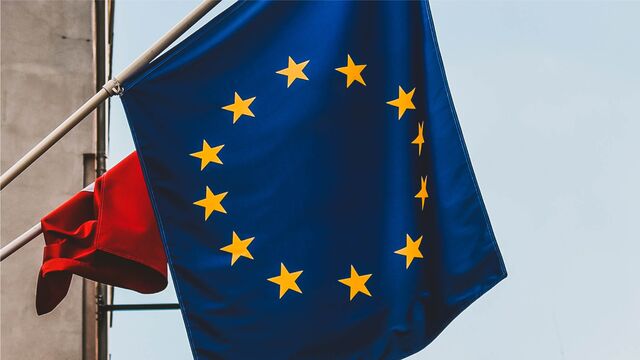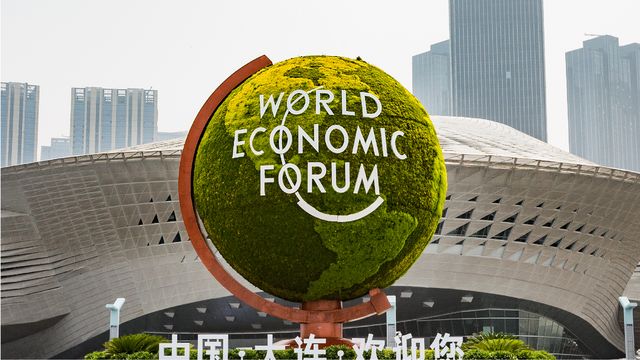The EU’s Mission to Rebuild Ukraine: Problems and Priorities
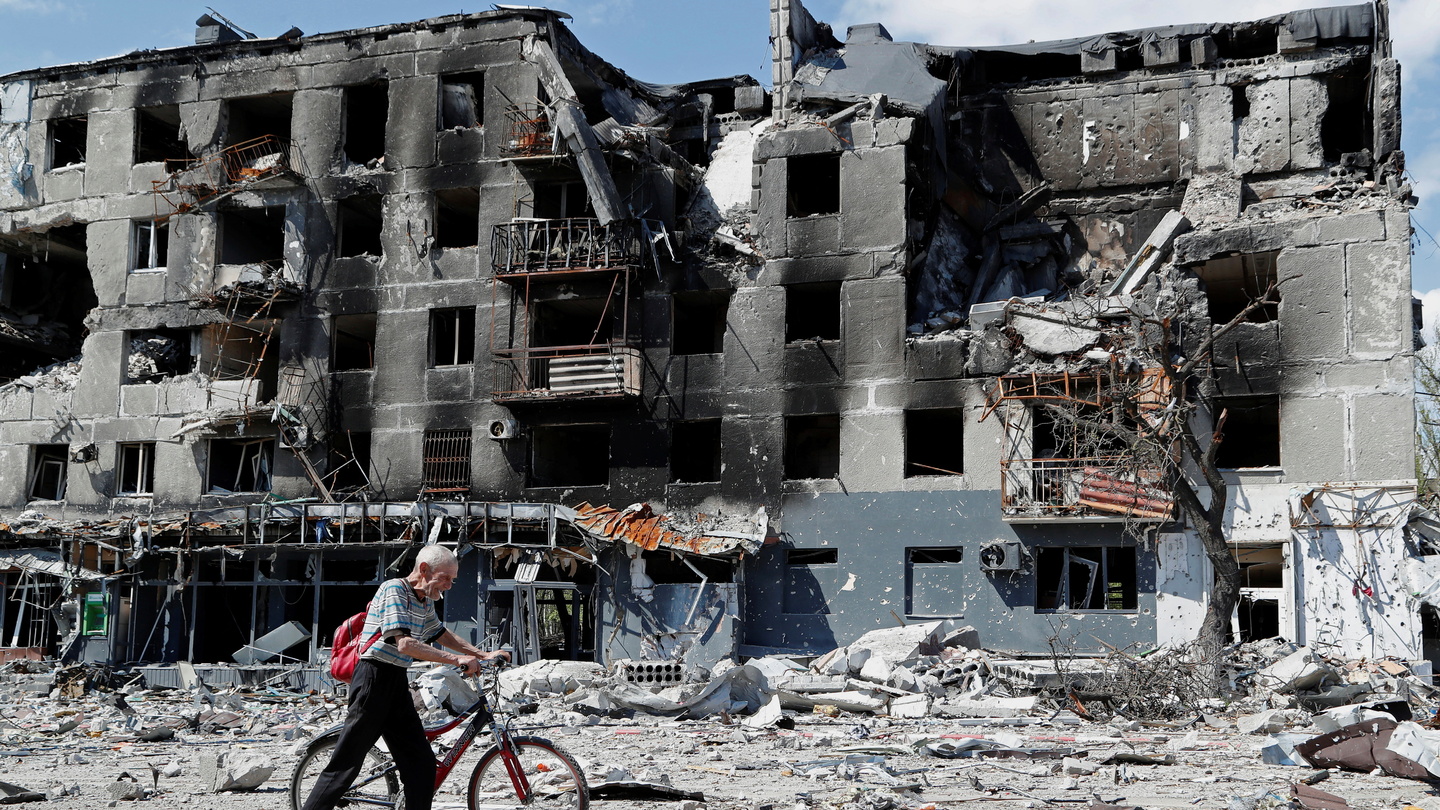
paper
Since February 24 of this year, as Russia invaded Ukraine, the economic and political stability in Europe has been disturbed. The continued destruction of Ukraineʼs economy and infrastructure is exacerbating the world crisis and putting parts of the world on the brink of a food crisis. The Ukrainian Recovery Plan presented in Lugano proposes the reconstruction of Ukraine. Since receiving a candidate status, Ukraine is also one step further on its course to membership in the European Union.
All this places the EU into the role of the main guardian of the countryʼs post-war reconstruction. This paper recommends that the EU and, in particular, the Czech Presidency should organise a comprehensive assistance in this regard and identifies its main priorities. First, besides assisting in upgrading the institutional capacities and efficiency of the central government, the EU should support the local actors and civil society partners in the post-war governance. Second, the post-war recovery should connect Ukraineʼs immediate reconstruction and reform needs and the EUʼs long-term digital and green priorities rather than prioritizing one over the other.
INTRODUCTION
The full-scale Russian invasion of Ukraine has severely damaged the whole country. After the war, Ukraine must be rebuilt with eager international assistance. The costs of the possible rebuilding and recovery are estimated to exceed even those of the Marshall Plan: the Ukrainian government recently expected the recovery costs to go up to $1 trillion. It has been already advised that the Marshall Plan-type assistance to post-war Ukraine should consist mostly of grants and, additionally, favorable loans.
Two important milestones happened so far. Ukraine has received an EU candidacy status in June 2022, while it presented its own proposal for post-war recovery at the Lugano conference in the following July. Ukraine will now have to manage two simultaneous tasks: fulfilling accession criteria and undergoing post-war reconstruction. In Lugano, EU representatives simultaneously committed to organizing the broader international efforts in assisting Ukraine. The EU has thus not only committed to showing solidarity but also positioned itself into bringing the two strategic aims into a mutual complementarity.
The Czech Presidency of the Council of the EU is highly supportive of these milestones and their full realization. Against this background, this policy paper identifies for the EU and the Presidency the main investment priorities for such a recovery funding scheme for Ukraine. For this, the EU can offer ready-made assistance frameworks, most notably those developed in the Pre-accession Assistance. What is more, such a combination of post-war and accession assistance will create economic interdependencies that can benefit both Ukraine and the EU.
The paper proceeds in explaining these funding priorities and scheme. First, it explains the pre-war legacies and war trends. Then the potential post-war complementarities between the EU strategic goals and the Ukrainian recovery targets are discussed. Lastly, the basic recommendations for the EU are provided.
PRE-WAR AND WAR LEGACIES: WHAT IS GOING ON?
Much of the structured and efficient funding must be planned against the background of pre-war trends and how the war reinforced or changed them. Considering both Ukraineʼs recovery proposal and EU funds and pre-accession assistance frameworks, this part identifies these trends in the areas of (i) democracy and efficient public institutions and (ii) the economy and developing of critical infrastructures.
DEMOCRACY AND EFFICIENT INSTITUTIONS
Efficient institutions guarantee good governance and funding transparency but also adherence to the rule of law. The war has shown the decision-making resilience of the Ukrainian central government but also the ongoing problems with mismanagement and corruption. Above all, it demonstrated the crucial role of civil society and local governance in the war efforts. All this should be considered in the organization of the post-war recovery funding.
The corruption should be targeted as it complicates the war efforts. In 2021, Ukraine had the second worst corruption level in Europe. Although there has been a slow progress in that regard, the situation has not dramatically changed. Despite the fact that the Ukrainian central government and institutions proved resilient to the war, corruption remains an overall problem. There were cases of selling humanitarian aid, helping the male citizens of Ukraine to cross the national border against the martial law rules, and demanding cash in return for allowing the humanitarian aid to go to the Ukrainian countryside.
Even though Ukraine has had a centralized governance system so far, the war manifests the key role of local governments. The areas with weak local governments were easily occupied by Russia, while those with strong governments proved resilient. Few reforms have been made in this direction so far and it’s easy to note two key problems at this level. First, there has been a low institutional capacity on the level of data-driven decision-making and a low-level qualification of local officials. Both would benefit from the EU funding and skill-building through various forums, workshops and cooperation programs.
Above all, the civil society – the NGO and think tank sectors – has proved key in supporting and often complementing the central government actions. The Come Back Alive Fund, which enabled a transparent global financing of the Ukraine defense, is just one example of their many initiatives. In particular, the NGOs successfully organized humanitarian and refugee assistance under the war conditions, especially outside large cities and in the regions with weak local governments. Yet, all these civil society actors are in need of sustained material and personnel support which could ensure their missions during the war and the post-war recovery.
Finally, the free and independent media should be assisted by providing grants for their institutional operations. Ukraine is among Europeʼs least favorable countries for free media. The media system has been deeply intertwined with corruption and political nepotism. There is a tight overlap between the most popular TV channels and the most popular political parties, as they are all owned by or related in some other way to the oligarchs. The war proved that a transparent and accessible media landscape is crucial for Ukraineʼs political future.
ECONOMY AND CRITICAL INFRASTRUCTURE
While the institutional reforms are necessarily a long-term effort, Ukraine needs immediate material help in its economic recovery and infrastructure renewal. Ukraineʼs economic transition has not fared well even before the war. Due to the war, the Ukrainian economy is expected to shrink by 45% in 2022. The infrastructural destruction in Eastern and Southern Ukraine due to the Russian aggression has been huge. It distorted Ukraineʼs connectivity with global markets. The war destroyed not only the critical infrastructures but also essential ones such as schools, housing, hospitals, stores, etc. But it also highlighted the new paths to Ukraineʼs post-war economic recovery.
Transport and energy infrastructures are key areas for immediate investment even during the war. Ukraineʼs coal and nuclear sources of energy production have been dominant so far, while the green energy market remains underdeveloped. Russia purposefully targeted and partially destroyed coal plants in Donbas and nuclear plants in the North and South-East of Ukraine, as well as the largest solar power plants in the Zaporizhian and Kharkiv regions. Despite the scale of this infrastructural destruction, the war and the related sanctions stopped the former energy dependence on the oil and gas imported from Russia. This opens the way to investing in the Ukrainian green energy market.
Over 5 million refugees left Ukraine due to the war, and many of them might not return. Growing numbers of Ukrainians have been killed by the Russian forces. This brings education and training systems to the forefront of the recovery given that the economy will be in a dire need of human capital. So far, Ukrainian primary education has been reformed as a part of the New Ukrainian School reform. There were also some minor changes in higher education. Yet, the war also incentivized the government to introduce new ways of e-learning. Many young Ukrainians were also using numerous opportunities for study exchanges with the United States and the EU. There is thus a need for further educational reforms but also improving connectivity and education infrastructures.
However, the war also demonstrated the strategic position of Ukraine in the global supply chains and green transformation. The investment into upgrading this position and building on it towards a higher added value and integration with the EUʼs single market is crucial. Russiaʼs invasion has not only destroyed much of the industrial base in Eastern Ukraine, but it also systematically targeted the Ukrainian agricultural sector in efforts to cut off its access to global markets. This resulted in global food shortages and rising prices around the world. At the same time, the IT industry proved to be resilient to war, while showing the developmental prospects for the post-war reconstruction besides that of the agricultural sector.
INVESTING IN A POST-WAR UKRAINE AND A MORE RESILIENT EUROPE
Based on the analysis of war trends above, this part identifies the main recovery against the benchmark of Ukraineʼs Recovery Plan and the EUʼs global goals of the green and digital transition and democratic resilience. Much of the guidance principle is that such a reconstruction should both prioritize Ukrainian needs and profit from their overlaps with the EUʼs priorities.
DEMOCRACY AND EFFICIENT INSTITUTIONS
The EU should therefore assist in developing the management skills and general culture of transparency in the political sphere and public sector. Meanwhile enabling stronger institutional capacities of the central government, the local actors, civil society and independent media should be equally supported, as they should be considered important partners in the post-war governance.
Concerning the central government, the transfers of experience and investment into cultivating the new generation of Ukrainian politicians and the bureaucratic apparatus is a key to the sustainability of political and judicial reform. There are already plans for such reforms in place. They must be, however, enforced and enabled. In the initial phase, this enabling should include internships for the young political professionals and bureaucrats in the EUʼs governments and parliaments. In the advanced phase, the institutional capacities should be massively promoted so that the central government would be able to adapt the country to the EU principles of rule of law, democratic governance, and economic management. On the level of local governance, the EU accession conditionalities and funding should be used to enforce the ongoing process of decentralization. This should abide by the EU principles and promotion of multilevel governance. Much of this can profit from the newly-formed European Alliance of Cities and Regions for the Reconstruction of Ukraine, which includes, among others, Ukrainian associations of local governance. These actors should be supported vis-à-vis the central government and their tight cooperation should be improved. They should be able to address the real problems of the locals and communicate them to the rather centralized recovery administration.
The key to success in this regard is the promotion of non-governmental partners in the policy decision-making, ranging from civil society and think tank sectors to independent media. Ukraine’s Recovery Plan does not include civil society support programs and rather fails to acknowledge the partnership with it in the post-war recovery. Thus, the role of the EU is extremely important for supporting the institutional- and personal-capacity building of the civil society, think tanks, and journalists, both at home and in the context of Erasmus+ exchange programs and training courses. This is important as they have been so far the only actors that can bring expertise on and monitoring of the EUʼs funding conditionalities in the dimensions such as gender equality, non-discrimination and social and environmental sustainability.
ECONOMY AND CRITICAL INFRASTRUCTURE
The biggest tasks will be the recovery of destroyed essential and critical infrastructures, establishing tighter connectivity with the EU, as well as reinforcing a socially inclusive and competitive economy. Much of this can build on Volodymyr Zelenskyi’s flagship Great Building program (Velyke Budivnytstvo) which now is extended by Ukraineʼs Recovery Plan. This pre-war project included the renovation of schools, roads, and other pieces of essential infrastructure. The Ukrainian government is already focusing on restoring the essential infrastructure, especially with the United24 initiative.
For the energy and transport infrastructures, the key initiative is to restore connectivity with the global markets but especially to improve it with the EU. These efforts should follow from the successful interconnection of the Ukrainian and EU electricity grids. To avoid a dependency on only one gas supplier, the construction of LNG terminals for the import of liquefied gas should be considered. Connectivity of the regions is an essential thing in that regard, as there are issues with that in rural areas. Also, with the current circumstances, Ukraine needs to continue in its transition to green energy. It will mostly include solar power, water power, wind power and hydrogen fuel as Ukraine’s best potential is in these areas. The EU should inspire and fund those businesses that have a potential to grow and mature thanks to new decentralized technologies.
The essential social, healthcare and education systems and infrastructure are equally necessary for restoring and improving Ukraine’s human capital. As for education, it can be facilitated with investments in the educational environment, ranging from elementary schools to tertiary education. Besides this, the exchange programs with the EU for schoolteachers and high school students (with 9–11 years of schooling), as well as researchers and university students, are desirable. The European Union should pay much attention to creating more of these socio-academic programs and developing the existing ones (e.g. Erasmus+), which will make it possible to facilitate the adaptation of scientific differences between Ukraine and EU countries.
In healthcare, the same kind of double investment is necessary. This may be a good practice regardless of whether the countries with highly advanced medicine join the reconstruction of the hospitals and healthcare systems in Bucha and Irpin. Furthermore, in the most war-stricken areas, the reconstruction efforts will necessitate essential infrastructures such as housing. The EU can allocate grants for the construction of social housing for the families most affected by the war to companies from the European Union. Thus, it will bring a triple benefit: profits will return to EU member states, European development companies will expand by creating new jobs, and Ukraine will get housing for its citizens.
Finally, even during the war, it is important to proceed with economic reforms, upgrading business infrastructure, and promoting the innovation and modernization of all economy sectors. Sector-wise, it is important to invest in the diversification. Despite the sectors of agriculture, IT, and creative industries being the most important ones for the Ukrainian economy, it should recover in as many diverse ways as possible in order to stand out in the global competition. The internationalization of this post-war recovery is also an incredible opportunity for European firms. It can provide them with the space to test new ventures and target their products at the Eastern European market in the best way possible.
In particular, the small and medium enterprises (SMEs) and their development and internationalization must be put into the center of the economic recovery. Just as in the EU, SMEs are the backbone of the Ukrainian economy and will have an essential role in the success of the post-war recovery. Because of the war, big business has been greatly reduced, while most SMEs have either disappeared or are surviving in difficult conditions. Thus, these businesses are in need of EU- and state-sponsored assistance and guidance more than any other actors in the economy. They must be supported appropriately by funding the existing Ukrainian programs or creating new ones. For example, while taking into account the principles of transparency and digitalization, the EU should reflect on the possibility of launching a grant program for reducing prices for the use of software for the operational functioning of businesses (for hotels, restaurants, cafes, etc.).
POLICY RECOMMENDATIONS
To conclude, the EU – under the Czech Presidency and in the long-term perspective – should claim the leadership in organizing the international efforts to assist Ukraine both during and after the war. In connection with showing European solidarity, this assistance should be immediate and robust. At the same time, it must be structured so that it would bring the best long-term effects possible. Thus, we propose the following recommendations:
→ The EU should put together a comprehensive funding scheme for Ukraineʼs post-war reconstruction and recovery. It should prioritize public grants which can then be blended with favorable loans from other development banks and international financial institutions.
→ Regarding governance institutions, the EU must condition the provision of public grants and financial support upon effective institutional reforms. When providing financial aid, it is critical to financially support the Ukrainian civil society alongside the local governance actors. Since Ukraineʼs Recovery Plan has had a centralized structure so far, the partnerships with local governments and civil society in the post-war recovery governance must be enforced.
→ Regarding infrastructural development, the EU should target the key critical infrastructures, from transport routes to energy grids, so that Ukraine would regain and reinforce its own connectivity with both global markets and the EU itself. In the war-stricken areas, the more essential infrastructures, ranging from hospitals to housing, must receive equal priority.
→ Regarding the economy, the EU should help restore and upgrade the business infrastructures and environment, and support public assistance to existing businesses and start-ups. Moreover, the EU needs to pay special attention to SMEs in the field of software availability and other services that would allow for building a transparent and digital business. Much of it should be aimed at the economic integration of Ukraine into the EU single market and the country's inclusion into the blocʼs industrial strategy initiatives.



